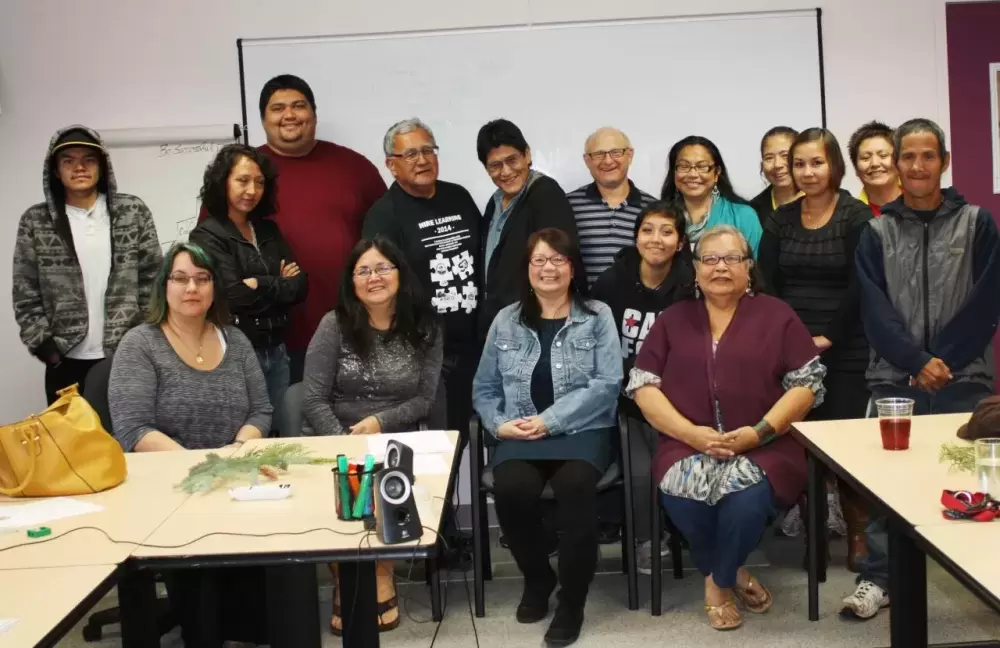The staff of the Nuu-chah-nulth Teechuktl Quu?asa program delivered an information session on traditional teachings to some of the clients of Nuu-chah-nulth Employment Training Program on Sept. 15. The purpose of the session was to provide first nations job seekers with additional tools that will help them succeed.
According to Quu?asa, having knowledge of one’s culture can be a powerful tool as people venture into the outside world.
Senior Quu?asa Wellness Worker Joe Tom talked about history and the impacts of residential school on Nuu-chah-nulth people today and how they’ve succeeded in spite of that ugly history.
He credited their survival to the wisdom of the elders and their knowledge of things like natural or cultural methods of easing physical and emotional pain.
The teachings, Tom said, are different from nation to nation, family to family and even individual to individual but there is a common theme and that is discipline.
Evolution has inevitably occurred everywhere, including in Nuu-chah-nulth teachings, but the principles, Tom said, remain the same and those principles are what’s important to carry forward to future generations.
“Take the practise of oosimch, for example,” said Tom. Traditionally, oosimch (spiritual bathing) is done in the frigid waters of a river.
“For many that means praying and cleansing the body with spruce boughs in the river, because this is what our naniiqsu (grandparents) did,” Tom said.
“They didn’t have bathrooms, hot water or even soap in their days, but if they did I’m sure they’d use it,” he continued.
The most important principle about oosimch is to pray as you’re washing your body of negativity, and that, Tom said, can be done in the comfort of your daily shower.
“The tools are changing but the principle remains the same – I want to be okay,” said Tom.
And the reason we oosimch is to clear our minds in order to prepare for the challenges ahead.
Quu?asa Outreach Wellness Worker Justin Dorward talked about the rationale behind the use of certain medicines used during a brushing session.
Spruce boughs, he said, are commonly used in brushings, because of their sharp needles.
Rubbing the sharp-needled boughs over the skin can be very painful, especially to those not used to brushing.
When the brushing is finished there is relief from the physical pain which, in turn, relieves the emotional pain, Dorward explained. This, he said, helps one let go of negativity.
Cedar is considered a nurturing plant and was useful to Nuu-chah-nulth people in countless ways. Because of its usefulness, it is considered good medicine.
Cold water is used to help release emotional pain.
Dorward asked the class to envision the first breath of a newborn or how we gasp and shudder after a long, hard cry. A dip in cold water makes us do the same thing and is therefore considered cleansing and healing.
Charlotte Rampanen pointed out that western medicine has its place, but for some it isn’t always the answer. “There’s so much power in our culture,” she said, before reminding everyone that self-care is especially important. “We can’t help others if we’re feeling weak,” she pointed out.







